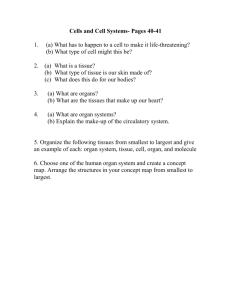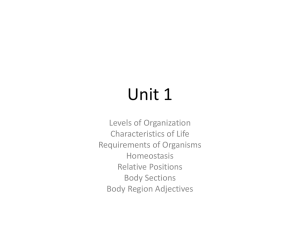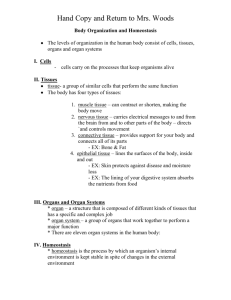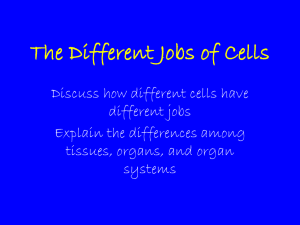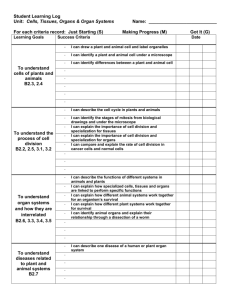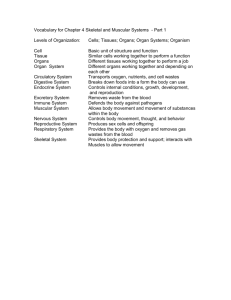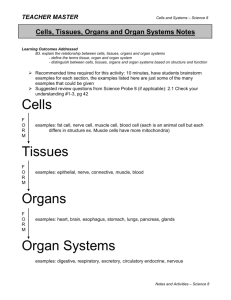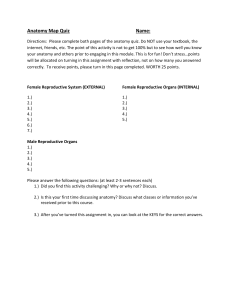Anatomy Basics Chapter 1
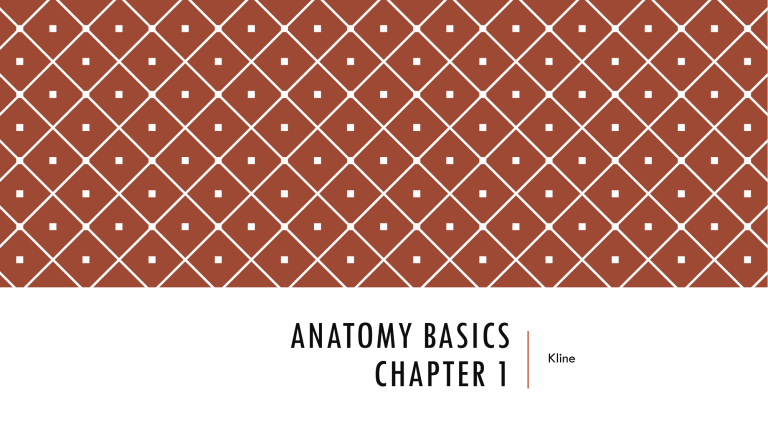
ANATOMY BASICS
CHAPTER 1
Kline
UNIT EQ
How is the human body organized in order to study it?
The human body is organized into planes, cavities, and systems which allow it to be scientifically studied.
ANATOMY
The study of the structure and shape of the body and its parts and their relationships to each other.
Greek origin:
tomy – to cut
ana - apart
PHYSIOLOGY
The study of how the body and its parts work or function.
Greek origin:
physio – nature
ology – study of
LEVELS OF STRUCTURE
Chemical level – atoms combine to form molecules
Cellular level – cells are made up of molecules (carbohydrates, proteins, lipids, nucleic acids)
Tissue level – tissues consist of similar types of cells
Organ level – organs are made up of different types of tissues
Organ system – organ systems consist of different organs that work closely together
BODY SYSTEMS
You must know the of the following systems:
6.
Cardiovascular System functions and parts of each 7.
Lymphatic System
8.
Respirator System
1.
Integumentary System
9.
Digestive System
2.
Skeletal System
10.
Urinary System
3.
Muscular System 11.
Male Reproductive System
4.
Nervous System
12.
Female Reproductive System
5.
Endocrine System
IN CLASS ASSIGNMENT
Complete body systems chart.
Outline important functions, structures, and notes for each body system in the bulleted column.
Draw and label structures for each of the different body systems on the blank diagram column.

